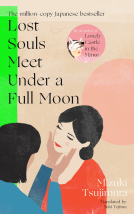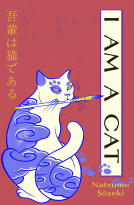
Wildflowers, Part I: Allaha of the Mountain
by Aurora Lee Thornton
This title was previously available on NetGalley and is now archived.
Send NetGalley books directly to your Kindle or Kindle app
1
To read on a Kindle or Kindle app, please add kindle@netgalley.com as an approved email address to receive files in your Amazon account. Click here for step-by-step instructions.
2
Also find your Kindle email address within your Amazon account, and enter it here.
Pub Date 24 Jan 2017 | Archive Date 31 Oct 2019
Talking about this book? Use #WildflowersSaga #NetGalley. More hashtag tips!
Description
Allaha is a knight of the Order of Aisha, Fallen of the Mountain. She – like her fellows – is stoic and reserved, trained to fight against demons and their ilk. When she triggers a vision that kills a renown oracle, she is set on a quest to complete the prophecy.
She becomes the protector of those mentioned in the prophecy.
Tamara is a young woman of the Menori – a migrant people that travel in caravans. She is also a hamalakh, able to sense the emotions of others as well as sense falsehoods. She is sometimes wise beyond her years, but at other times her youth can cause her to draw incorrect conclusions.
Hibu, a sorcerer, is from the country of Jeongwon – a land where the nobility are worshipped as gods. He was the personal sorcerer of Prince Ji – a testament to the strength of his powers. He is ever curious and seeking new knowledge, questioning all the people they meet on their journey. He is joined by his demon familiar, Goric.
Karejakal was orphaned by the death of his entire clan – but his mastak powers gave him the ability to keep their spirits close. Still a child, Karej is a Tibu – a race of cat people that walk upright. Learning of his people from the spirits of his clan, the child has adopted Allaha as his mother.
Together, they travel the land of Magdra, seeking answers to a broken prophecy wherein they only know two things – that a darkness is coming, and that they are meant to stop it.
All they need to discover now is how to do it.
A Note From the Publisher
Content warnings: Bad language, implied sex, sexual language, molestation, descriptions of past abuse, graphic violence, references to slavery
Advance Praise
"'Wildflowers' takes the age-old quest convention in a mystical ancient world and peoples it with strong characters who readers will want to follow... interplay between characters is fun and often funny, and helps readers identify with them, though they’re of a different world." - Judge, 25th Annual Writer’s Digest Self-Published Book Awards.
Marketing Plan
Amazon Marketing: keyword and product search placement
Netgalley newsletter
Amazon Marketing: keyword and product search placement
Netgalley newsletter
Available Editions
| EDITION | Paperback |
| ISBN | 9781495138164 |
| PRICE | US$15.00 (USD) |
Featured Reviews
DNF at 3%.
The whole conceit and writing style of this one just didn't work for me.
The narrative starts off with a sort of meta-textual prologue - already a hard thing to pull off - where the main character is being interrogated and ostensibly giving her last testament. This failed to hook me, as it was literally all tell and no show. Even when this short section ended and the real story began, the writing just didn't grab me. We were introduced to four or five characters in quick succession and we get a huge infodump about each of their appearances and what that tells the reader about their nation and culture of origin - because of course we can tell all that from their appearance. Especially in a secondary world fantasy setting, it was just a lot, and it just didn't work for me.
recently read this book, as NetGalley had this book up for review and reading the synopsis, it sounded like a book totally my thing - and in moments this book truly was. The story of Allaha, told in reverse, Wildflowers Part I, certainly is an interesting start to a saga.
I feel this first book focuses on the world building and that's no bad thing. An intricate display of scenes and places weaves through this book brilliantly and really allows you to see the world Allaha is in and it makes for a good book for that reason. I love the diversity of cultures shown in the book and made clear by the first characters we see, this is not the same old boring world.
There are however a lot of characters, and though I love the array of representation in this book, including pansexuality and even hint towards an aro/ace character, I still feel like there's a lot to take in this book and plot wise there's very little explanation for why people do what they do leaving me a little frustrated as it's unclear what they are doing sometimes within the story - I do however feel like this is a series where I want to know what happens next.
I feel like this book is a great foundation for something greater to come, I really hope I'm right.
 Stine P, Reviewer
Stine P, Reviewer
DNF. I just couldn't with the writing style. I'm really sad about that, because the story has everything I usually like. I'll therefore put it in my ''try again at another mindset''-shelf, in hopes of some day wanting to read it.
 AJ D, Reviewer
AJ D, Reviewer
An interesting take on the familiar 'quest' Fantasy trope, Thornton's 'Wildflowers, Part 1: Allaha of the Mountain' has some strong characterisation and very capable world-building. There are lots of good ideas here, including fresh takes on the humanised animal races theme, and there is much scope for investing both in the characters and storyline.
There are times when the description of buildings, architecture, clothing, or different races can seem a little forced or even unnecessary; however, this criticism can be levelled at even Tolkien, so I find it hard or unfair to judge a writer harshly for having a good image in their head of any given scene or place in their story.
The premise of the protagonist being interrogated, which is set in the present tense (as opposed to the main story's past tense telling) and which opens the novel, was overly assumptive on the part of the interrogator, and extremely exposition-heavy; though this didn't intrude too much on the story, proper, it would in some respects have been easier to simply cut those parts, altogether.
Thornton's is a self-professed LGBTQIA novel. There are several moments of tolerance or intolerance for a reader to consider their own thoughts about, along with...
Readers who liked this book also liked:
Mizuki Tsujimura
General Fiction (Adult), Mystery & Thrillers, Sci Fi & Fantasy






